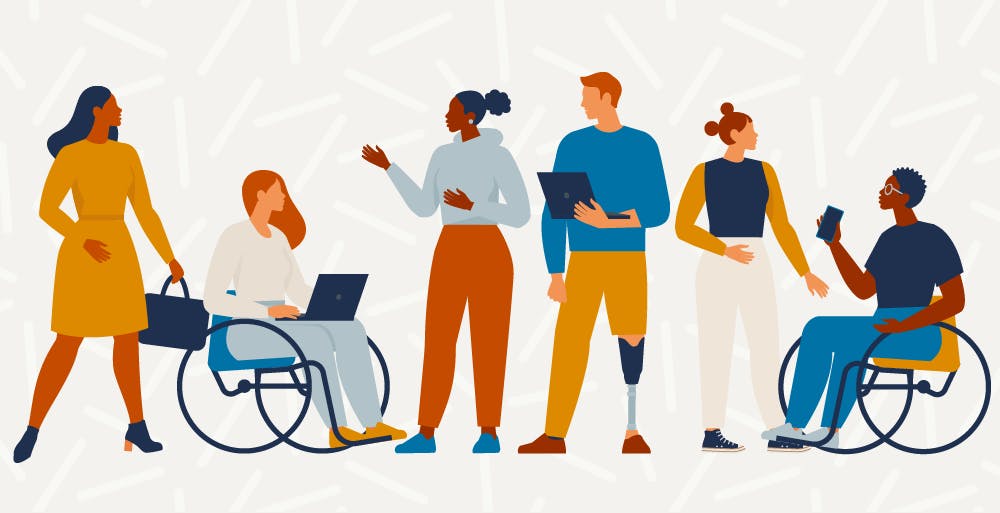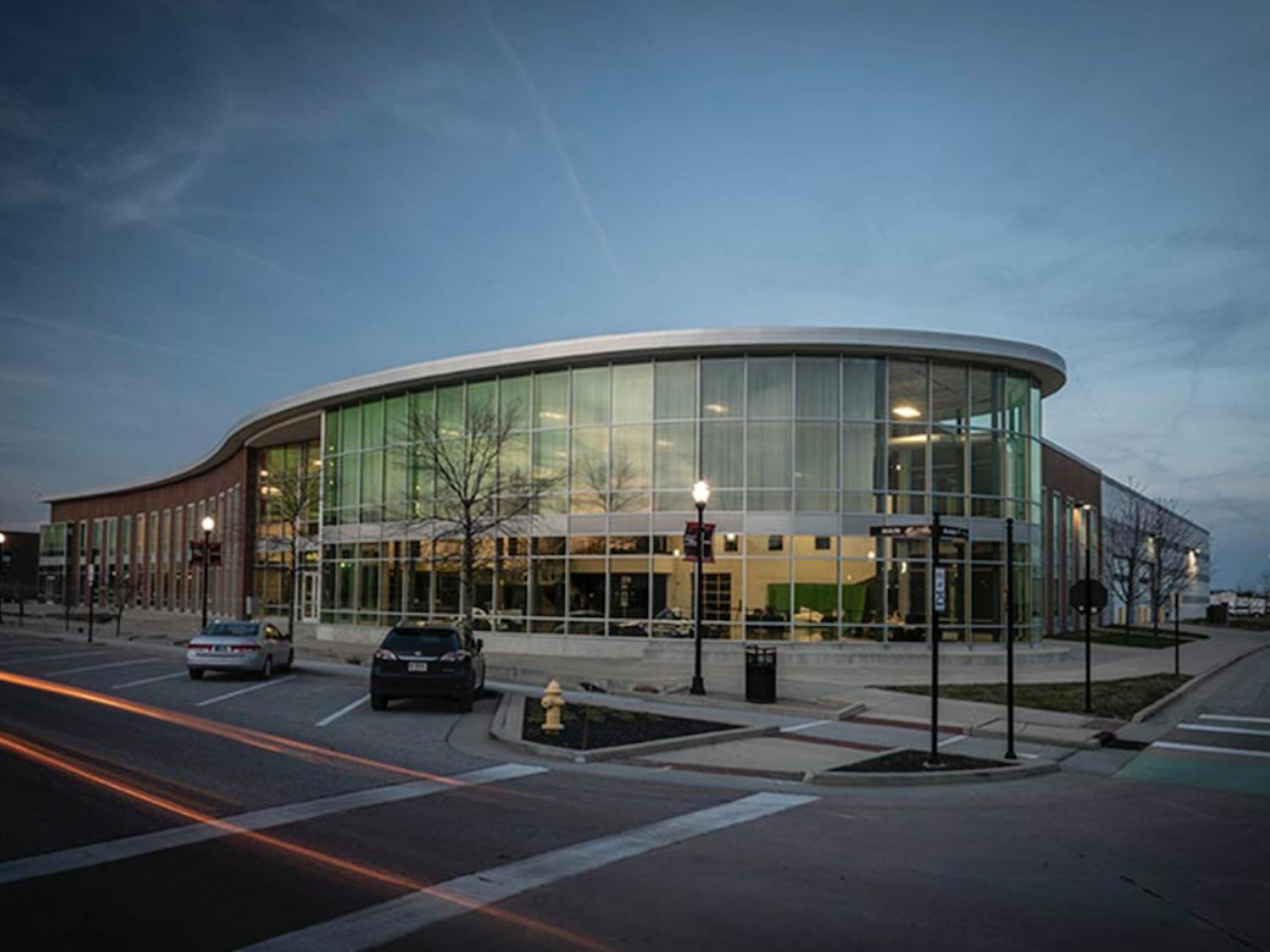Success begins with opportunities. Opportunities start with awareness.
“People with disabilities are the world’s largest minority, an estimated 15 percent of the global population. But many of us - disabled and nondisabled alike - don’t know how to act, what to say, or how to be an ally to the disability community,” says Emily Ladua, author of “Demystifying Disability”.
Accessible Educational Services (AES) is a division of Diversity, Equity and Inclusion (DEI) at IUPUI. The mission of AES is to prioritize equitable access to education, according to Natalie Albert, the new assistant director of AES. Recent organizational changes represent IUPUI’s ongoing efforts to elevate ability as an important part of diversity on campus.
In the summer of 2023, changes at AES included the hiring of a new assistant director and an organizational name change. Although the acronym AES remains the same, their previous title was Adaptive Educational Services.
“A new name was decided by all IU disability offices to help maintain consistency throughout the IU system,” Albert said. “Now all disability offices throughout IU are called AES. I believe this is a positive change and will help students be able to find the support they need with more ease.”
According to the AES website, “Accessible Educational Services (AES) is the disability services office for IUPUI, IUPUC, IUFW students, and the IU School of Medicine students at nine statewide locations. This office determines if a student qualifies for accommodations, approves reasonable accommodations, and serves the campus community to ensure the implementation of those accommodations whenever possible.”
Albert's primary role is to support, approve and maintain academic accommodations for students with disabilities on campus.
“I serve as a faculty resource for the implementation of accommodations, collaborate with campus partners as a disability ally to ensure ADA (Americans with Disabilities Act) compliance, provide training sessions regarding AES services and oversee and support the AES office staff,” Albert said.
AES's short-term outlook includes elevating disability awareness on campus, perfecting the ongoing implementation of its digital applications and growing its autism program, according to Albert. She is also interested in promoting universal design learning (UDL) as a part of AES’s long-term strategy.
AES is prioritizing the growth of its Connect 2 Achieve peer mentor program. The program facilitates the creation of social connection opportunities for students with autism. Mentors and mentees meet monthly.
Opportunities for social connections improve educational experiences for all students, and are important keys to completing a college education, according to IUPUI’s DEI.
AES is committed to raising awareness in the campus community on its offerings for both students and faculty. Additionally, the staff is present at student orientations in an effort to help students with disabilities get the help they need.
Albert believes it would be beneficial during National Disability Awareness Month in March of every year to have a designated week on the calendar devoted to AES on IUPUI’s campus.
“Though often overshadowed in the public eye by the equally important Women’s History Month,” Sam Knepprath from IUPUI’s Office of Community Engagement stated. “National Disability Awareness Month was founded in the same year of 1987; President Ronald Reagan officially made the declaration with Proclamation 5613 on February 27.”
The annual exposure could greatly improve AES’s visibility and, according to Albert, open numerous opportunities for those struggling to successfully integrate education with their disabilities, Albert said.
The book “Demystifying Disability” discusses how awareness is a vital step toward advancing positive changes for people living with disabilities. Through understanding and awareness people can learn how to “think, talk and ask about disability,” Ladau says.
Blind IUPUI student Lance Varnell would like other students to know that it is helpful when they talk to him. It's the only way he can connect with people as he is making his way around campus. Varnell is pursuing a degree in Sustainability Practice and Policy. Audible communication is paramount for him. His various support networks and AES help facilitate the independence he needs to complete his academic tasks.
Faculty support, testing accommodations and assistive technology are essential to his success, according to Varnell. If there are weak links in his academic support communication channels, it can present significant challenges at times.
“The World Health Organization (WHO) estimates that today 2.5 billion people need one or more assistive products such as wheelchairs, hearing aids, or apps that support communication and cognition. They enable people to live healthy, productive, independent and dignified lives, and to participate in education, the labour market and civic life.”
AES is committed to the improving implementation of its digital testing applications that support students and faculty, Albert said. It is a priority for AES to improve this Test Room Booking module for future semesters.
“Having a streamlined testing process allows our AES Testing Lab to improve lab operations,” Albert said. “Within our case management system, Accommodate, students can now schedule their exams in the ‘Test Room Booking’ module. This allows students with testing accommodations to schedule their exams with AES online.”
Albert emphasized the promotion of universal design learning (UDL) as a part of a possible long-term strategy. UDL is a foundational learning framework built on a well-researched premise that the way individuals learn is unique to their own. Those with disabilities would have the flexibility to decide what tools are needed to succeed.
IUPUI could set up a UDL facility under one roof. It would incorporate multifaceted learning environments i.e., sensory rooms, and could be a central locale for all the various learning support tools needed to accommodate an individual’s unique choices in learning aids, according to Albert. For now, the approach of implementing UDL is something to consider down the road.
AES is located in Joseph T. Taylor Hall (UC), Room 100. Email aes@iu.edu for scheduling Monday-Friday 9 a.m. to 3 p.m. Walk-ins are welcome, upon availability. For students interested in sensory environments, check out AES’s Sensory Corner courtesy of the Bridge to the Future Grant.
Paula Clemens is a senior majoring in Journalism. She chose Journalism because of her creative nature. She has 21 years of experience in equine sports, and wants to use her writing skills to elevate the mission of equine-assisted therapy for non-profit foundations.





